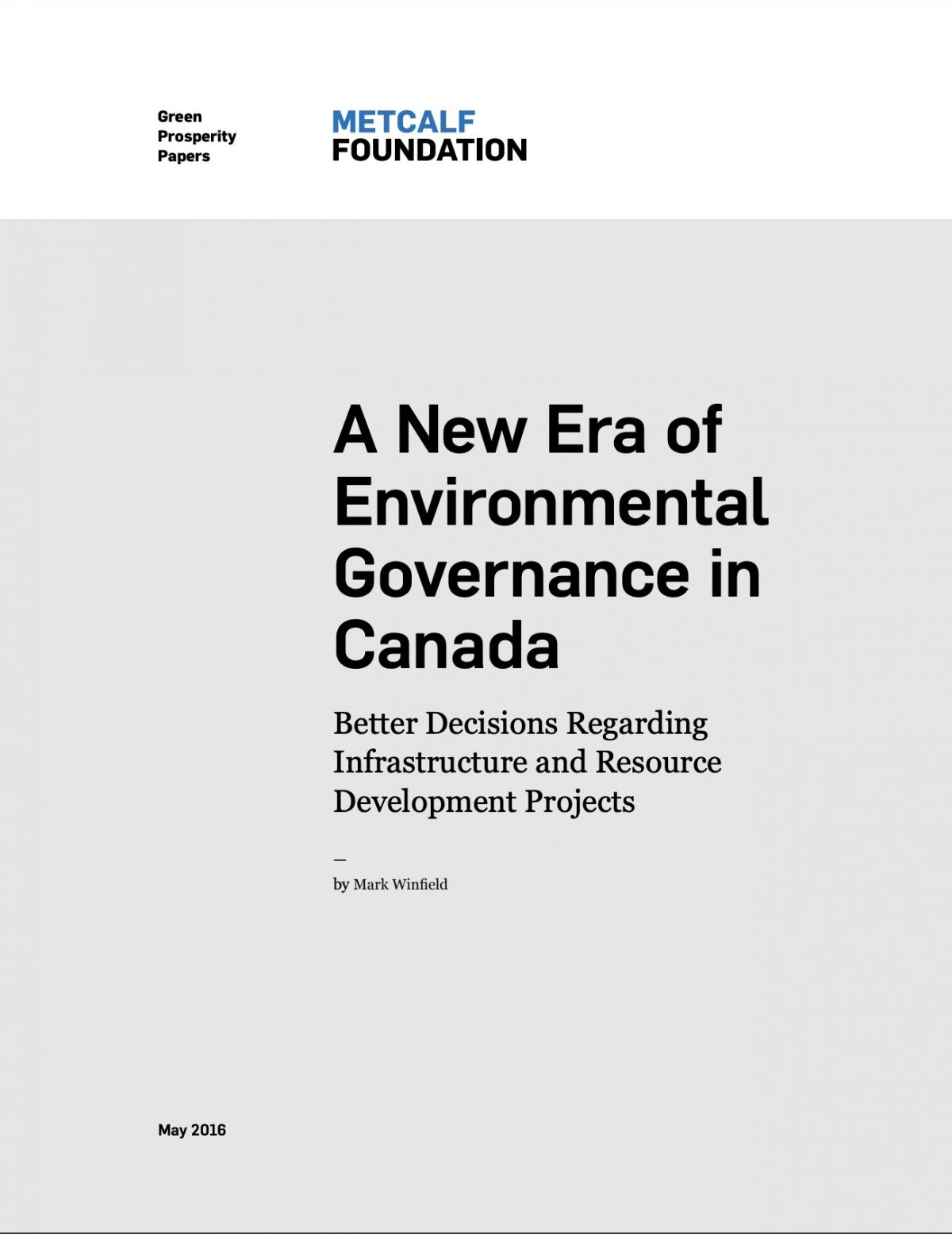When reviewing infrastructure and resource development projects in Canada, government leaders need to follow decision-making processes that are transparent, democratic, rigorous, and advance sustainability.
For decades, two closely linked procedural policy tools—environmental impact assessment and mechanisms for public participation in decision-making—were thought to possess these qualities, and to offer the potential to balance the often conflicting interests of stakeholders in development projects.
However, Mark Winfield argues in A New Era of Environmental Governance in Canada: Better Decisions Regarding Infrastructure and Resource Development Projects that these tools have largely lost their legitimizing power due to government “streamlining” efforts that accelerate project approvals. As a result, affected communities and aboriginal peoples, non-governmental organizations, and even groups with economic interests in development outcomes no longer accept the decisions made using these processes. Rather than facilitating speedy approvals and moving project construction forward, streamlining has had the opposite effect, resulting in greater uncertainty and delay.
Winfield’s paper charts the emergence and decline of these two procedural tools, and offers clear recommendations for how contemporary policy makers and political leaders may restore public confidence in their environmental governance.
A New Era of Environmental Governance in Canada is the first paper in the Metcalf Foundation’s Green Prosperity series. Five papers will be released in the coming months, addressing a range of issues and opportunities in building a low-carbon, resource efficient, and resilient Canada.


